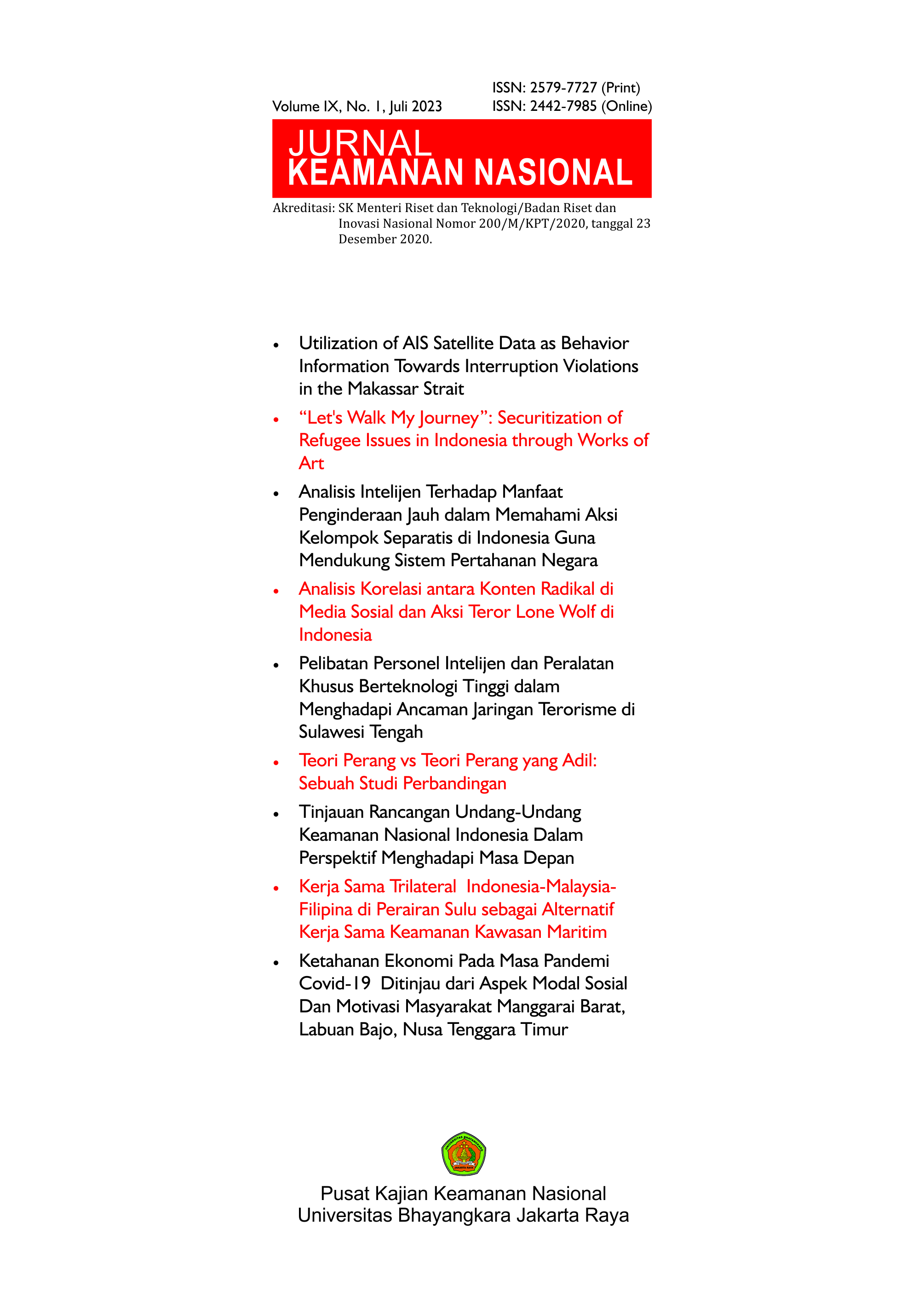Pelibatan Personel Intelijen dan Peralatan Khusus Berteknologi Tinggi dalam Menghadapi Ancaman Jaringan Terorisme di Sulawesi Tengah
Keywords:
Intelligence, Human, Technology, Strategic, Cooperation, TerrorismAbstract
The problem raised in this study is about the role of human intelligence as an organization, human networking, and high technologies
special equipment for intelligence when facing the dynamics of the movement of terrorist networks in the middle of the wilderness in Central Sulawesi Province. Meanwhile, the purpose of this study is to determine the role and implementation of information gathering in special intelligence operations. A number of theories used by researchers are intelligence theory, technology utilization theory, strategy theory, and cooperation theory. Where the approach used in this research is a qualitative approach, with a descriptive type that utilizes case study models in certain areas. The researcher used the technique of observation, interview, discussion, and document study. Furthermore, the data obtained were analyzed using an interactive analysis model and then validated. There are three roles described in this intelligence operation, namely the role of investigation, security, and intelligence gathering, where the three activities are carried out by human intelligence and techno intelligence simultaneously.
Downloads

Downloads
Published
Issue
Section
License
Please read and understand the copyright terms for submissions to this journal.
Copyright Notice
The Jurnal Keamanan Nasional is under the Creative Commons Attribution 4.0 International (CC-BY 4.0) License, according to which:
1) Authors retain copyright and grant the journal the right to first publication, with the work simultaneously licensed under the Creative Commons Attribution (CC-BY 4.0) that allows the sharing of articles published with the acknowledgement of authorship and the initial publication in this journal.
2) The authors are authorized to make additional contracts separately for distribution of the version of the work published in this journal (for example, publication in an institutional repository or as a chapter of the book), as long as there is recognition of authorship and initial publication in this journal.
3) Authors are authorized and encouraged to publish and distribute their work online (for example, in institutional repositories or on their personal pages) at any time before or during the editorial process, as it increases the impact and reference of the published work.












